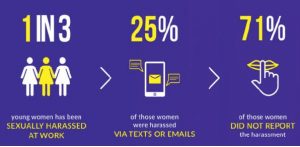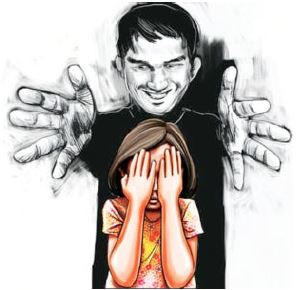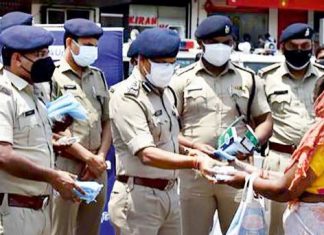
Recent incidents of alleged rape in Hathras and the consequent death of the victim have once again brought into sharp focus the issue of security of women. In any society, women are more vulnerable than men to various crimes being committed against them. The reasons for the same include a patriarchal society, impression in society that men are more powerful than women (and thus women are weak), a false feeling that the honour of the family is being violated by a section of women – particularly when they marry against existing norms. Other flimsy reasons being used to subjugate women are that they are helpless and cannot retaliate because of the genetic reasons of the body and that they have to tolerate the offences committed against them and religious, misleading teachings that women are prohibited from outdoor activities.
The type of offences which take place against women includes murder, attempt to murder, rape and murder, unnatural intercourse, rape, gang rape, acid attack to disfigure, hurt, molestation, harassment by husband or his relatives and friends, abortion without permission, harassment for dowry demand by the husband and in-laws, kidnapping, human trafficking, harassment at workplaces and cybercrimes. These are just a few examples. The list is unending.
The Government of India has enacted stringent laws to protect women. These include general laws as well as special laws, such as the Indian Penal Code, Dowry Prohibition Act, Protection of Children from Sexual Offences Act, Prevention of Medical Termination of Pregnancy based on sex determination.
Women of all ages remain vulnerable to various attacks. I propose to analyse these offences one by one and discuss measures to prevent them.
 The most heinous offence against women is rape. According to available details, this may be broadly categorized firstly as sexual intercourse against the wishes and forced on her. Secondly, induced under false promise to marry, where the woman may be having a living relationship or otherwise. Thirdly, which internationally is being discussed, is marital rape, which means rape by the husband since the intercourse or unnatural intercourse is against the woman’s wishes even though she is married to him.
The most heinous offence against women is rape. According to available details, this may be broadly categorized firstly as sexual intercourse against the wishes and forced on her. Secondly, induced under false promise to marry, where the woman may be having a living relationship or otherwise. Thirdly, which internationally is being discussed, is marital rape, which means rape by the husband since the intercourse or unnatural intercourse is against the woman’s wishes even though she is married to him.
 Available details of incidents of reported rape indicate that nearly 97 per cent of these incidents are committed by persons who are family members, including stepfather, father, brother, close male relatives or persons who are well known to the victim. Three per cent are committed by unknown persons. Victims include women of all age groups, but maximum victims are in the age group of twelve to thirty. Locations of these offences include the house itself, nearby premises, near toilets, shelter homes, railway stations, bus stands, isolated places, orphanages, vehicles including buses, taxis and autos. The timing of such offences is not specific, but there is a higher rate where such heinous acts are committed when it is dark or at twilight. According to a study, in 32 per cent cases, the offence was registered in less than 24 hours; in 27 per cent cases, it was registered after 24 hours but in less than seven days; in 16 per cent cases, it was registered after one month, while the remaining 25 per cent was reported much later. Though rape is the most serious offence and punishable by more than three years imprisonment and tried by a Sessions Court, the conviction rate is very low – around 20 per cent or less.
Available details of incidents of reported rape indicate that nearly 97 per cent of these incidents are committed by persons who are family members, including stepfather, father, brother, close male relatives or persons who are well known to the victim. Three per cent are committed by unknown persons. Victims include women of all age groups, but maximum victims are in the age group of twelve to thirty. Locations of these offences include the house itself, nearby premises, near toilets, shelter homes, railway stations, bus stands, isolated places, orphanages, vehicles including buses, taxis and autos. The timing of such offences is not specific, but there is a higher rate where such heinous acts are committed when it is dark or at twilight. According to a study, in 32 per cent cases, the offence was registered in less than 24 hours; in 27 per cent cases, it was registered after 24 hours but in less than seven days; in 16 per cent cases, it was registered after one month, while the remaining 25 per cent was reported much later. Though rape is the most serious offence and punishable by more than three years imprisonment and tried by a Sessions Court, the conviction rate is very low – around 20 per cent or less.
 The above points are indicative that strong steps are needed to be taken. First and foremost, it needs to be stressed that the victim needs moral support from friends, relatives as well as members of NGOs having a reputation for voluntary service, to come forward and complain. Out of pressure, threat, duress, false promises of marriage, the victim generally refuses to disclose unless it becomes inevitable or she realizes that the offender has cheated her and is refusing to keep the promises of marriage.
The above points are indicative that strong steps are needed to be taken. First and foremost, it needs to be stressed that the victim needs moral support from friends, relatives as well as members of NGOs having a reputation for voluntary service, to come forward and complain. Out of pressure, threat, duress, false promises of marriage, the victim generally refuses to disclose unless it becomes inevitable or she realizes that the offender has cheated her and is refusing to keep the promises of marriage.
Even though youngsters are exposed to advertisements and films, they are inquisitive about having sex; the natural consequences of such physical relationship cannot be prevented. Irrespective of attraction towards the opposite sex, which is obvious in the youth, certain minimum distance and precautions have to be developed and implemented till the girl attains a marriageable age (18 years and above). At present, the number of single mothers is growing by the day, and girls as young as 13 or 14 being pregnant, are increasing across all sections of society. Any physical relationship with the opposite sex – whether known or otherwise, whether by consent or under pressure or based on attraction, should be immediately communicated to seniors, family members, friends, and if possible, to the police. The earlier it is reported, the faster the solution. Even if two people are in a healthy relationship, parents can show understanding, and by mutual consent, get the couple married. Parents of young girls also need to show more understanding and maturity and not insist that marriage has to be with a person of their choice and not of the girl.
 After the recent judgment by the Supreme Court that any incident of a minor girl going missing from the house has to be registered as an incident of kidnapping and abduction, the number of offences under this head has gone up in a geometrical ratio. Though few of these are detected, very few of these agree to go back to their parents. They are kept in shelter homes till they reach maturity age. Young girls also need to appreciate the concerns of their parents. Several instances have come to light where young men have deceived young women by giving false identities, like belonging to the same religion or caste as the victim. After the girl becomes pregnant, the true identity of the boy is revealed. The girl is forced to either change her religion or spend her life as a destitute, ostracized by her parents and relatives. Another important factor is to avoid being alone with any male or a group of males, however close they might be. Innumerable instances have taken place when a victim is offered a drink mixed with some drug resulting in her being unconscious and becomes a victim of lust.
After the recent judgment by the Supreme Court that any incident of a minor girl going missing from the house has to be registered as an incident of kidnapping and abduction, the number of offences under this head has gone up in a geometrical ratio. Though few of these are detected, very few of these agree to go back to their parents. They are kept in shelter homes till they reach maturity age. Young girls also need to appreciate the concerns of their parents. Several instances have come to light where young men have deceived young women by giving false identities, like belonging to the same religion or caste as the victim. After the girl becomes pregnant, the true identity of the boy is revealed. The girl is forced to either change her religion or spend her life as a destitute, ostracized by her parents and relatives. Another important factor is to avoid being alone with any male or a group of males, however close they might be. Innumerable instances have taken place when a victim is offered a drink mixed with some drug resulting in her being unconscious and becomes a victim of lust.
Instances of rape against minor girls, particularly those under five years of age, evoke instant wrath from the entire community. In other countries, it is legally binding on parents to ensure that children less than five are not permitted to be left alone at any time. If caught doing so, they are punishable by law. There is a glaring gap in our country regarding this, and lawmakers need to address it urgently. Infants and young children are highly vulnerable. They need protection from parents as well as through legal provisions to punish violators sternly.
Before an incident of rape takes place, there might have been several instances of harassment, taunting, or approaching the victim under some pretext or the other. The victim usually tends to ignore these or not report to law enforcement authorities or family members. There is a possibility that these might be construed as encouragement or consent by the offender and he feels emboldened to make further advances. It is said that women have a sixth sense about men, their behaviour and motives. Such advances should be neutralised there and then so that further damage is controlled on time.
While working as a DGP in Maharashtra, I had issued a circular that if stern action is taken in incidents of molestation, further incidents of rape can get prevented. Strict orders were issued to all police officers to ensure that a charge sheet is filed within 24 hours if a molestation complaint is filed. This practice resulted in the immediate trial of the offender, and sentences were also declared on time. I remember many instances where magistrates sent the offender to jail for a term of three years within two months of the incident.
 To strengthen women security, the Government of India has launched a national emergency number – 112. This number caters to all emergencies, including offences, medical and fire. Similarly, to prevent threats and misuse of cyberspace, even anonymous complaints can be filed by logging to www.cybercrime.gov.in. A helpline number – 1555260 is available. One can contact the Cybercrime Police between 9 am and 6 pm.
To strengthen women security, the Government of India has launched a national emergency number – 112. This number caters to all emergencies, including offences, medical and fire. Similarly, to prevent threats and misuse of cyberspace, even anonymous complaints can be filed by logging to www.cybercrime.gov.in. A helpline number – 1555260 is available. One can contact the Cybercrime Police between 9 am and 6 pm.
 It is the need of the hour that police officers are allowed to investigate these offences without resorting to any politics about the same in the name of religion, caste or language. Post-mortem and forensic experts need to be honoured without any hesitation. Any effort to hoodwink the public for the sake of politics is bound to result in injustice to the victim as well as to others. Every effort should be made to support the victim to withstand pressure during the trial period so that the victim gets justice, and the offenders are severely punished and dealt with accordingly.
It is the need of the hour that police officers are allowed to investigate these offences without resorting to any politics about the same in the name of religion, caste or language. Post-mortem and forensic experts need to be honoured without any hesitation. Any effort to hoodwink the public for the sake of politics is bound to result in injustice to the victim as well as to others. Every effort should be made to support the victim to withstand pressure during the trial period so that the victim gets justice, and the offenders are severely punished and dealt with accordingly.













